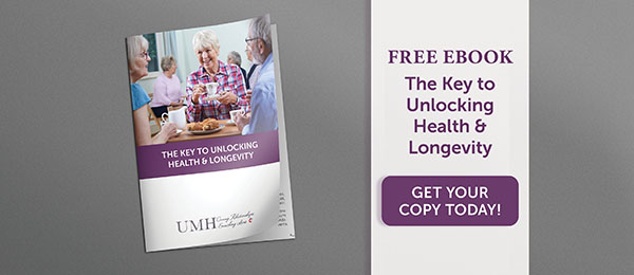Aging Well Series: Good Nutrition as a Vital Ingredient for Health
assisted living | Senior Living Communities CT | senior health | senior health tips | Independent Senior Living | healthy living | independent living in ct
The term “aging well” can mean various things to various people, but it generally revolves around the idea of optimizing one’s physical, mental, and emotional well-being throughout their senior years. Because a number of factors contribute to this overall sense of well-being, we’re going to dive into the topic more deeply by highlighting a different aspect each month. Today, we begin with the ever-important element of nutrition.
The truth is our nutritional needs and realities evolve with age, so it’s important to understand these changes and approach senior nutrition accordingly. To help focus your efforts on channeling good nutrition for overall health and wellness, the following are some expert answers to common questions in this critical area of aging well.
How does good nutrition support the concept of aging well?
Naturally, there are some changes in physical health that occur with age. From variations in bone mass and muscle to higher risks for developing chronic diseases and health conditions, the aging process requires a particularly strong focus on issues related to the body. And applying a healthy approach to nutrition is fundamental to prioritizing those issues in a way that supports aging well.
Of course, there’s more to physical health than the dietary aspect, but that’s the one we’re honing in on here. With consistent efforts to consume a balanced, nutrient-rich diet that positively impacts weight, circulation, the musculoskeletal system, brain activity, and other important functions of the body, seniors are better equipped to minimize health risks, manage current conditions and consistently feel at their best.
How does a senior’s nutritional needs differ from those of a younger person?
In general, seniors tend to require fewer overall calories than they once did in their younger years. This is the result of a myriad of factors, such as changes in metabolism and a lifestyle that involves less activity than before. However, the need for various nutrients becomes even more heightened with age. With changes in body composition as well as the use of medications to manage various conditions, ensuring the proper amount of nutrients in the context of a well-balanced diet is vital to staying not just physically healthy, but also mentally and emotionally well.
It’s also increasingly important to pay particular attention to the consumption of salt and sugar. Conditions like diabetes, high blood pressure, obesity, autoimmune disorders, liver disease, and cardiovascular disease can all be negatively impacted by taking in excessive amounts of sugar and salt. Because seniors are already at higher risk of experiencing these types of conditions, it’s vital for them to be vigilant about how much salt and sugar they’re including in their diet.
What does a “healthy plate” look like?
Perhaps you think you know what a healthy meal looks like, but to optimize the aging process, it’s best to do some research on what actually comprises a well-balanced plate based on expert insight. You’re bound to have a difficult time implementing healthier food and beverage choices if you don’t know precisely what those entail.
The USDA has made this process simpler by launching the MyPlate program. Check out this resource to get a clearer understanding of what you should be eating in the five food groups every day. There’s a handy quiz to find out your “level” for more customized information, as well as tools and recipes that can streamline your nutritional approach.
What role does protein play in maintaining a healthy diet?
Lean muscle mass is supported by consuming adequate amounts of protein. Unfortunately, many seniors are maintaining diets that do not integrate enough protein. While you may be meeting recommended portions of beef, chicken, or eggs, consider how you might supplement with other forms of protein, such as seafood, dairy, soy, beans, peas, and lentils—especially given that these alternatives work double duty by also affording nutrients in the way of fiber, calcium, vitamin D, etc.
When it comes to protein, it’s all about a healthy balance. Know that excessive protein can be dangerous for seniors with diabetes and kidney disease, so the key is ensuring enough protein without going overboard or relying on the same sources too heavily. Extreme diets that don’t balance all the essential food groups can deprive seniors of the necessary vitamins and nutrients found in options like fruits and vegetables.
What about fiber?
The Institute of Medicine recommends that total fiber intake for adults older than 50 should be at least 30 grams per day for men and 21 grams for women. This nutrient is found in fruits, vegetables, beans, peas, whole grains, nuts, and seeds. High-fiber foods tend to be low in calories and fat, making them a helpful tool for healthy weight management.
In terms of supporting the aging process, a fiber-rich diet helps fight heart disease by lowering cholesterol levels. It may even help reduce the risk of getting certain types of cancers, such as colorectal cancer. For those with diabetes, fiber can help control blood glucose levels, as it slows the breakdown of nutrients and allows glucose from foods to move into the blood little by little. The fiber found in whole-grain foods also supports the prevention of constipation and hemorrhoids by effectively moving waste through the body.
If your current diet could use more fiber, be sure to start slowly, as consuming too much too quickly can lead to pain. Add small amounts of fiber-rich foods each day until you meet your goal, and drink extra water to keep the fiber moving through your digestive tract.
How does hydration fit into the picture?
The aging process is sometimes accompanied by a reduced sense of thirst, which means that seniors may experience more challenges with consuming fluids and a greater risk for dehydration. Dehydration causes drowsiness and confusion, among other dangerous side effects. So make no mistake, adequate intake of water and other healthy fluids is essential for overall health.
As we age, our bodies sometimes experience a decrease in saliva production, which can lead to dry mouth and additional issues with taste. Avoid worsening this problem by drinking proper amounts of water and other fluids throughout the day. Staying hydrated can help your body counteract some of the negative impacts of salt and sugar in your system, as well as prevent the salt cravings that sometimes accompany dehydration.
Especially if you’re following a high-fiber diet, it’s important to consume plenty of water. Aside from the obvious option to drink several glasses of plain water throughout the day, you can incorporate hydration-rich foods like soups and broths, skim milk, melons and other fruits, cucumbers, lettuce, and tea. And always moderate your consumption of alcoholic beverages, as these have empty calories and few to no nutrients. Consuming alcohol can cause many health problems and accidents, and it may be dangerous or detrimental when mixed with certain medications.
For additional tips on senior health and lifestyle issues, check out our blog. To find out how United Methodist Homes provides a wealth of offerings and opportunities to support the health and wellbeing of our residents, contact us today or schedule a complimentary visit now.
About Marissa Salvesen
My journey into the world of senior living began when I started working for United Methodist Homes in 2010. Starting as an Activities Director at one of our-winning assisted and independent living communities and then transitioning to Marketing and Promotions Manager for UMH, I now work as the Manager of Mission Development, fostering the Mission and Values of our organization. I love sharing stories about the many ways we build meaningful relationships and enrich the lives of those we serve, and am proud to be part of building UMH’s 140-year legacy of caring. Wondering what makes our communities such special places to live and work? Connect with me and find out!

Our Blog is a 2016 Platinum Generations Award Winner! The Generations Award is an annual international competition for excellence in senior marketing recognizing professionals who have communicated to the 50+ Mature Markets.





